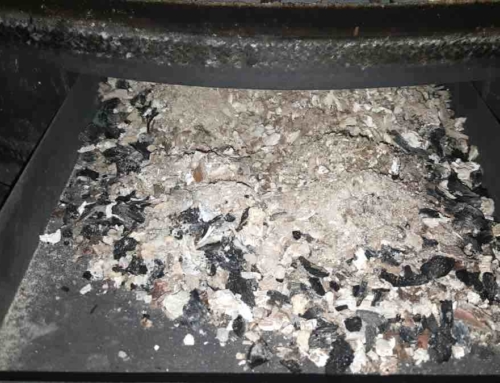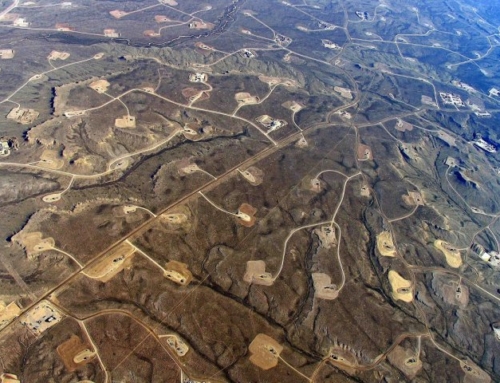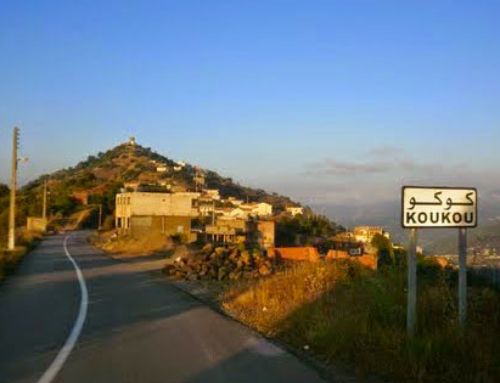The UNIFIL was assisted in its tasks by 51 military observers of the United Nations Truce Supervision Organization (UNTSO). The United Nations Interim Force in Lebanon (UNIFIL) receives funding The Force's liaison arrangements provided a constant link with the Chief of Operations of the Israel Defence Forces and the Director of Lebanese General Security, as well as with the normal chain of command on each side. The mandatehad to be adjusted twice, due to the developments in 1982 and 2000. The Secretary-General also called for increased foreign aid to Lebanon, noting that the reintegration of the southern area would impose a heavy burden on Lebanon and that the clearance of landmines and unexploded ordnance would be a "vast task" requiring international assistance. The Council urged the parties to end the serious breaches and the air, sea and land violations of the withdrawal line and to abide by their obligation to respect the safety of UNIFIL and other United Nations personnel. Description. Originally, UNIFIL was created by the Security Council in March 1978 to confirm Israeli withdrawal from Lebanon, restore international peace and security and assist the Lebanese Government in restoring its effective authority in the area. In response, Israeli forces invaded Lebanon on the night of 14/15 March, and in a few days occupied the entire southern part of the country except for the city of Tyre and its surrounding area. Notwithstanding their reservations about the line, the Governments of Israel and Lebanon confirmed that identifying this line was solely the responsibility of the United Nations and that they would respect the line as identified. To Rebecca 6 and Robyn 6 Months.--Love you lots and see you soon, Dad xxx (14219479258).jpg 1,067 1,600; 610 KB. Since then, the Lebanese authorities have prevented further demonstrations by Palestinians on the line. Further, it urged all parties to abide by their obligation to respect the safety of UNIFIL and other United Nations personnel and called for closer cooperation between UNIFIL and the Lebanese Armed Forces, particularly regarding coordinated and adjacent patrols. It similarly urged all parties to ensure that UNIFILs access to the Blue Line is fully respected and unimpeded in all its operations, condemning in the strongest terms all attempts to restrict its free movement. But, as had been demonstrated more than once over the past four years, and again in January 2005, significant periods of quiet along the Blue Line were often followed by episodes of hostilities. Not an official record. Security Council Extends Mandate of United Nations Interim Force in Through this new mandate, the Council reaffirms UNIFILs authorization to operate independently and conduct both announced and unannounced patrols under the terms of the status-of-forces agreement and its mandate. Februar 2022) Department of Peacekeeping Operations (DPKO), Office of the Under-Secretary-General (OUSG) (1992-present) . "I should like to encourage Member States to cooperate with the Government of Lebanon and the United Nations agencies and programmes in support of the reconstruction and development of the area, not only for its own sake but as an important contribution to stability in this potentially still volatile part of the world.". In the light of conditions prevailing in the area, the Secretary-General recommended that the Council extend the mandate of UNIFIL until 31 July 2005. Condemning all acts of violence, the Council also expressed great concern about the sea, land and continuing air violations of the withdrawal line. United Nations Interim Force in Lebanon (UNIFIL) - legal - UNARMS The United Nations Interim Force in Lebanon (UNIFIL) receives funding United Nations Interim Force in Lebanon Location: Lebanon Headquarters: Naqoura Established: March 1978 Local time: 21 July 2023 - 09:04 EEST Monitoring cessation of hostilities and helping. Not an official record. USD 30 million have been raised thus . The Secretary-General warned that considerable risk remained that hostile acts would escalate and lead the parties into conflict and recommended extending UNIFIL for an additional six months. . The Secretary-General had hoped that this situation would present an opportunity for achieving progress towards the objective of bringing international peace and security to southern Lebanon . As conflict between Israel and Hezbollah erupted in southern Lebanon, the Secretary-General maintained regular contact with the Prime Ministers of Lebanon and of Israel, as well as other relevant actors and concerned parties. It also stated that it would consider deploying its armed forces throughout southern Lebanon following confirmation by the Secretary-General of Israel's withdrawal. Vacancies with UNIFIL - United Nations Interim Force in Lebanon - UNjobs All members of this Council must be aware that this inability to act sooner has badly shaken the world's faith in its authority and integrity, the Secretary-General said, adding that War is not politics by other means, but represents a catastrophic failure of political skill and imagination.. New hostilities on the Israeli-Lebanese border started on 12 July 2006 when Hizbollah launched several rockets from Lebanese territory across the Blue Line towards IDF positions near the coast and in the area of the Israeli town of Zarit. It supported the continued efforts of the Force to maintain the ceasefire along the withdrawal line and to correct violations, resolve incidents and prevent their escalation. However, in view of the conditions in the region, he stated that he would be reluctant to entrust the task to unarmed observers alone, and would recommend instead a combination of armed infantry and unarmed observers. Members of the United Nations Interim Force in Lebanon watch Israeli soldiers on a tank move past them as as they return to Israel from operations in southern Lebanon 08 August 2006. In the mean time, UNIFIL continued to occupy all of its positions and played an active and constructive role under its mandate. He added that, consistent with Security Council resolution 425 (1978), Lebanon should continue to deploy its armed forces to extend its control over the south. Expressing great concern over the serious breaches, as well as the air, sea and land violations of the withdrawal line, the Council urged the parties to put an end to those violations and abide scrupulously by their obligation to respect the safety of UNIFIL and other United Nations personnel. The United Nations Office for the Coordination of Humanitarian Affairs (OCHA) estimated that one million Lebanese were displaced between 12 July and 14 August, with some 735,000 seeking shelter within Lebanon and 230,000 outside. The Secretary-General concluded that the situation in Lebanon and the wider region did not support a change in the UNIFIL mandate or another reconfiguration of the Force at this stage and recommended that the Security Council extend its mandate until 31 January 2006 with no changes to the Forces strength and composition. United Nations Interim Force in Lebanon (UNIFIL) - CRS Reports By itsresolution 1655of 31 January 2006, the Security Council extended the mandate of UNIFIL until 31 July 2006 and called again on the Government of Lebanon to fully extend and exercise its sole and effective authority throughout the south. Persistent Israeli air incursions into Lebanese airspace also disrupted the fragile calm. In June 1982, Israel invaded Lebanon again. In both instances, the IDF responded with heavy artillery and mortar fire to the Lebanese side of the line in the same vicinity, in the latter case also dropping two air-to-ground missiles. Parallel to that mission, which took place between 26 April and 9 May 2000, the Secretary-General consulted with interested Member States, including those contributing troops to UNIFIL. The meeting began at 10:06a.m. and ended at 10:17a.m. Wrapping up her visit, Bintou Keita, Head of the United Nations Mission in the Democratic Republic of the Congo, met with representatives of displaced communities, civil society and the local community in Bukavu, South Kivu, to discuss ways to strengthen partnerships to support provincial peace and security efforts. On 17 April 2000, the Secretary-General received formal notification from the Government of Israel that it would withdraw its forces from Lebanon by July 2000 "in full accordance with Security Council resolutions 425 (1978) and 426 (1978)". In its resolution1365 (2001), the Council requested the Secretary-General to continue taking the necessary measures to implement the reconfiguration and redeployment of the Force "in the light of developments on the ground and in consultation with the Government of Lebanon and the troop-contributing countries.". The Government of Lebanon has stated that it would consent to the deployment of UNIFIL to the vacated areas only after the Israeli violations had been corrected. Situation in the Area, July 2003 - January 2004. In the light of conditions prevailing in the area, the Secretary-General recommended that the Security Council extend the mandate of UNIFIL until 31 January 2002. The captured soldiers were taken into Lebanon. In hisreport, submitted to the Security Council on 20 July 2000, the Secretary-General stated that southern Lebanon had seen dramatic change. Progress also continued in the areas of assistance to the civilian population and the integration of the formerly occupied zone with the rest of the country, including infrastructure, health and welfare systems, as well as postal services and communications. On 22 October, Hezbollah fired 10 missiles and 61 mortar rounds at five IDF positions in the same vicinity. In Tyre, Lebanon, a regional mine action cell was established with the help of the United Nations Mine Action Service, which cooperated closely with the Lebanese national demining office. Media in category "United Nations Interim Force in Lebanon". From the end of July until early October 2000, the situation in the UNIFIL area of operations was generally calm, except for numerous minor violations of the line of withdrawal, the so-called Blue Line. Reiterating its strong support for the territorial integrity, sovereignty and political independence of Lebanon within its internationally recognized boundaries, the Council stressed the importance of, and the need to achieve, a comprehensive, just and lasting peace in the Middle East, based on all its relevant resolutions. But, the start of the new hostilities on 12 July had radically changed the context in which the mission operated. Stressing the need for both parties to refrain from any action that could destabilize the situation on the ground, the Secretary-General warned: "Both the air incursions and the fire violations carry substantial potential for escalation.". Regarding air violations, the report stated that Israeli aircraft violated the line on an almost daily basis, penetrating deep into Lebanese airspace. In order to prevent a resurgence of violence and bloodshed, the underlying causes of conflict in the region must be addressed. He suggested two infantry battalions, a group of UNTSO observers and support. The first elements of the expanded force were deployed with record-breaking speed for any peacekeeping operation of such complexity, with battalions from France, Italy and Spain arriving to the area of operation by 15 September, and joining the contingents already in place from Ghana and India. The Line of Withdrawal, commonly known as the Blue Line, is not an international border demarcation between the two states. United Nations Interim Force in Lebanon | Encyclopedia.com United Nations Interim Force in Lebanon (UNIFIL) Major General Aroldo Lzaro Senz. By other terms, the Council urged all parties to abide scrupulously by their obligations to respect the safety of UNIFIL and other United Nations personnel, reiterating its call for the rapid finalization of Lebanons investigation into all attacks against the Mission, notably the incidents of 4August2018 and 10February2020.
Old Age Home Requirements,
Is Marietta College Division 1,
Articles U






